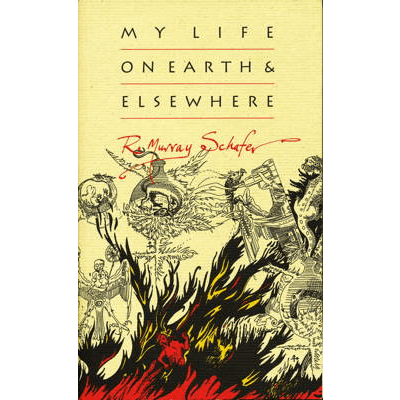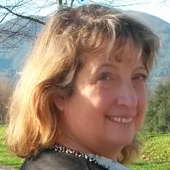 ASK ALICE: Weekly, from 2003 until 2016/17, Alice McVeigh took on the role of classical music's agony aunt to answer questions on a surprising variety of subjects.
ASK ALICE: Weekly, from 2003 until 2016/17, Alice McVeigh took on the role of classical music's agony aunt to answer questions on a surprising variety of subjects.
Packed With Good Things
RODERIC DUNNETT reports from the
2019 Three Choirs Festival in Gloucester
One can't help marvelling, year on year, at the imagination, the vitality and the unfailing perfection of the Three Choirs Festival. Staged this year at Gloucester, in 2020 at Worcester, and the next year at Hereford, centred on the three cathedrals, and gathering the most spectacular forces, it continues to produce, both in the dazzling nave concerts and in a host of neighbouring or outlying recitals, standards that are distinctive, wonderfully finessed, meticulously well-prepared and overall superb. Nowadays the Three Choirs has seemed at its highest peak, particularly since the unmatched Philharmonia Orchestra took on a regular formal residency at the Festival.
What is its aim? Ideally, as Adrian Partington, this year's Festival Artistic Director, argues, it is 'always to honour [our] great tradition, by presenting masterpieces of the choral-orchestral repertoire, whilst offering challenges by performing musical rarities and premieres'. Either way, it was a week packed with good things, music of the highest quality, and very sociable too. For chorus and orchestra events, embraced within a single week, it has no peers. Add a dense flow of excellent chamber music, afternoon and late night choirs, and solo recitals, many in a cathedral context, and there's no doubt the Three Choirs leads the field.
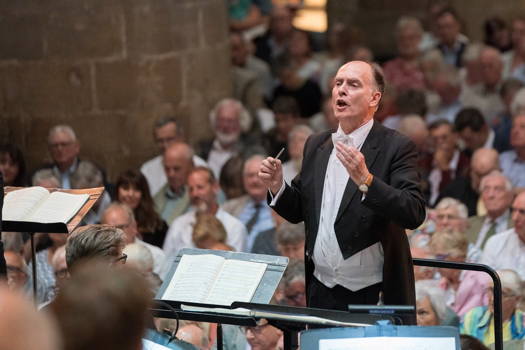
Adrian Partington, the 2019 Festival Artistic Director, conducts an immensely dynamic performance of Berlioz's dramatic work La damnation de Faust. Photo © 2019 Michael Whitefoot
In all key areas he has the backing of the administration, overseen by the festival's Chief Executive, Alexis Paterson: 'New music has been a passion of mine since I was a music student', she says: 'I think revivals are really important too. To bring back some terrific modern pieces should be one key aim: this year John Joubert, Gabriel Jackson, Judith Weir, Ian Venables.'
And some brand new, too, many of them commissioned. 'Especially exciting is our premiere of Bob Chilcott's A Christmas Oratorio, made possible thanks to a particularly generous donor, Dame Amelia Fawcett: the Festival's support from such individual donations is absolutely vital. However, by and large, we achieve an income of some 50% from Box Office takings - a pretty remarkable sum.
'It's exciting, in piecing together a programme, how a "theme" gradually emerges. You see not just random items, but a coherent festival evolve. Sometimes, by this juxtaposition, you hear stunning connections you'd otherwise miss.'
This consistent high quality could not have been more obvious than when Partington himself, who also completed the week with Beethoven's Ninth, in which not just the choral last movement but the adagio were a triumph of interpretation, pacing and dynamic, and who bore the brunt of the week's conducting, took the podium and exercised masterly control for an undeniably sensational performance of Berlioz's semi-opera (or following an earlier work, Eight Scenes from Faust, his 'légende héroique'): that endlessly entertaining saga, The Damnation of Faust.
Partington, who with the support of an invaluable Gloucester team devised the music programme throughout this packed week, following tradition interspersed with fresh ideas a cluster of more familiar items: Verdi's Requiem, conducted to great applause by former Gloucester chorister - and later Music Director of English National Opera - Edward Gardner; the blistering Beethoven; Handel's bracing and rather grisly narrative Israel in Egypt - the story of the devastating plagues and the imprisoned Israelites' escape from Egypt to the Promised Land; and even Karl Jenkins' widely popular The Armed Man, which is commonplace nowadays among choral societies countrywide.
Possibly the real novelty was when Partington himself gave a taste of the unusual, on the last evening, prior to that largescale, sensational finale embracing Beethoven's Ninth Symphony, with both the Philharmonia and the 170-strong chorus on exhilarating form. He programmed, in an unusual combination, one of Gustav Holst's least familiar works, The Mystic Trumpeter. The work, ignored by Holst in his last two decades, and only released by his estate over fifty years after the composer's death, is one that - being one of his earliest - is particularly intriguing: not least, because it betrays his fascination at that time with Wagner, having heard Mahler, no less, conduct Götterdämmerung at Covent Garden. Holst - then highly impressionable - was turning eighteen. The memory stuck. The Mystic Trumpeter is almost as little known as The Planets is celebrated. It dates from 1904, when the composer was thirty. It managed three performances, then faded from view; here, under Partington, it at last received its due.
If one of the Artistic Director's aspirations is, as mentioned, to breathe life into works that have long - or more recently - languished, it was certainly achieved here. This adventurous rarity clearly merited its revival.
If Holst remains the most obvious link between Western music and the East, he was done ample justice during this week. As well as a talk on Holst and India - the Holst Birthplace Museum is in Cheltenham - there was the penultimate evening's set of Hymns from the Rig Veda - supported by the chanting of Upanishad texts. Holst's St Paul's Suite, a more commonly heard work, had figured somewhat earlier. In 2020, it will be Herbert Howells who will be ubiquitous.
But the main - and overwhelming - long-hidden Holst work was introduced by Partington on the last night. The Mystic Trumpeter dates, like the first of the Rig Veda hymns, from 1904; he revised it seven years later. A soprano (the charming, beautifully focused Ilona Domnich), and the texts - in four parts - are, as is The Sea Symphony, drawn from Walt Whitman.
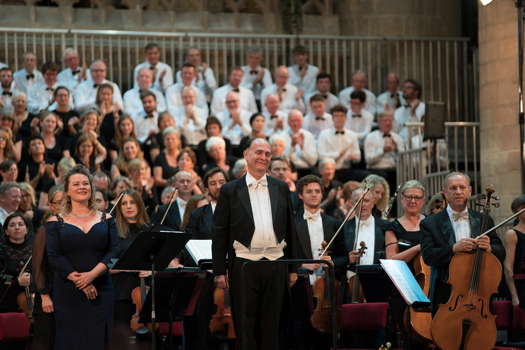
The enchanting soprano soloist Ilona Domnich joins Adrian Partington after a riveting final night's performance of Gustav Holst's The Mystic Trumpeter. Photo © 2019 Michael Whitefoot
Holst liked the blaze and fanfare of trumpets, and he obviously warmed to the text. 'I hear thee, trumpet - listening, alert, I catch thy notes ... whirling like a tempest around me ...' declares part 1; and anon, in part 2, the visionary 'love, that is day and night - love that is sun and moon and stars'. Part 3, disconcertingly, is the thunder of war: 'Utter defeat upon me weighs - all lost - and the foe victorious'; but part 4 brings the restoration of peace: 'War, sorrow, suffering gone - the rank earth purged - nothing but joy left!' Oddly enough, the shifts in mood, from optimism to grimness and back to hope - have, perhaps, some kinship to Holst's Hindu interests; but the music reveals a different and perhaps surprising allegiance - to Wagner, who briefly fascinated him - he seemed embarrassed, though Elgar had no problem parading his allegiance to Wagner - since he was staggered and entranced upon hearing Götterdämmerung in London conducted by Mahler, no less, rather as Vaughan Williams' Tallis Fantasia bowled over the young Gurney and Howells.
The soprano launches in early: forcefully and dramatically, but soon floats exquisitely, apt for the serenity of the first section of text, in which the Philharmonia's marked empathy, subtlety and nuance with such an unusual score demonstrated the prowess for which it is famed. In the second movement the orchestra again, not least brass, urges her forward, gradually growing distempered and troubled. Even by now Partington's selection was proved right: The Mystic Trumpeter is clearly a superb, deeply absorbing work that should never have been withdrawn: perhaps more like Strauss than Wagner, it adds an unusual dimension to what we see as Holst's output. One might compare - if not Berlioz's Les nuits d'été - Berg's Seven Early Songs, or more, Sibelius' cycle Luonnotar, first heard at the Gloucester Three Choirs in 1913, and again in 2013. Indeed the soprano sails or hovers over the orchestra almost throughout. The vocal line is inspired, and the orchestration pretty much equally so. An inspired choice.
The Festival can pride itself, too, on its feast of late night concerts: this fecundity of events - morning, afternoon, and belated, in just over a packed week (late July to early August), invites comparison with even Edinburgh and the Proms: they may run longer, but to compare this Festival's achievement in such a compact space of time is not unduly amiss.
The Festival Eucharist, an impressive and attractively choreographed event - by clergy and choir - overseen by the dedicated, hard working Adrian Partington, was sung by Gloucester Cathedral Choir and entirely - and rather boldly - given over to contemporary music. Some names one knew quite well, including Giles Swayne, whose anthem Our Orphan Souls also featured in the Tuesday afternoon concert conducted by Worcester's Samuel Hudson, having just left Blackburn Cathedral, with its superb Walker/Wood organ, to take up the job at Worcester. (Several later liturgical events featured all three cathedral choirs.) Women composers appeared quite prominently during the week: a piece by Cecilia McDowall, and Diana Burrell's Missa Brevis - composed for Brentwood Cathedral: she has also written a congregational Mass, named Michael's Mass, plus a largescale Mass for St Endellion in Cornwall - both surfaced.
Two further additions to this satisfying opening Eucharist were anthems from Cantica Sacra by Lydia Kakabadse, British-born but of Greek-Austrian and Russian-Georgian descent (hence the name); and most creditably, an anthem ('Surely the Lord is in this place') by the Dean of Hereford, Michael Tavinor, whose music credentials include an Organ Scholarship at University College, Durham, and who was previously vicar of Tewkesbury Abbey. He is also, admirably, that rare phenomenon, a specialist on the English Baroque-era music of William Boyce (1711-79), composer of music for the Coronation of George III, just as Handel was for George II. Stanford's Psalm 150 and Elgar's Te Deum formed the solid centrepieces of the preceding day's Opening Service, backed - a new initiative - by a capable young ensemble from the Royal Welsh College of Music and Drama.
But more important - for these purposes - was the timely celebration of Sir James MacMillan in the programme for the 2019 Three Choirs. Instructive and enjoyable was a midweek interview (with Partington), in which MacMillan talked about his work, some of his performances and his deeply and long held religious belief, which dates back to childhood.
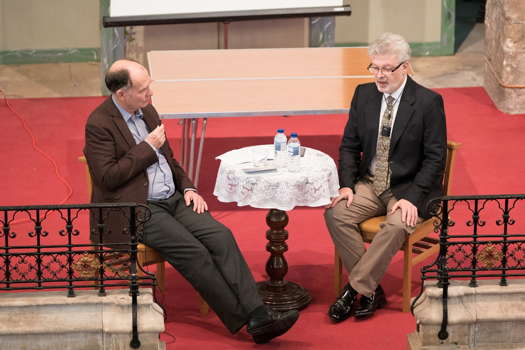
James MacMillan in conversation with Adrian Partington. Photo © 2019 Michael Whitefoot
2019 saw the sixtieth birthday of MacMillan, once the youthful firebrand among Scottish composers and still a major force. He is being especially celebrated in several places this year, including his own festival at his native Cumnock, in Ayrshire. He was likewise recently (in mid July - he was born on the 16th of that month) Composer of the Week on BBC Radio 3. The Proms, rather feebly, mounted only one work, albeit a fine, saddened and moving one, The Confession of Isobel Gowdie, evidencing the brutality of witchcraft hunting akin to The Crucible or The Devils of Loudun - all seventeenth century. More impressively, he has just been featured composer at the Edinburgh Festival, with half a dozen works included, especially his Fifth Symphony, newly composed for The Sixteen choir, the whole being conducted by Harry Christophers, and prefaced by MacMillan's Second Symphony, conducted by the composer himself.
Review continues on the next page >>
Copyright © 31 August 2019
Roderic Dunnett,
Coventry UK




